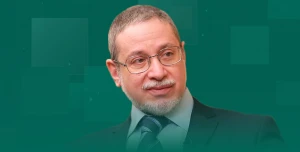
“Peacekeeping marathon”. What is really happening?
The Russian war against Ukraine seems to have a deadline, but no borders...
In recent weeks, global concern for peace in Ukraine has grown, but the focus remains on the process, as key beneficiaries have not yet reached an agreement.
The most active “struggle for peace” was organized by China, involving most countries of the Global South. Chinese leader Xi Jinping called for “creating favorable conditions for a political settlement of the war in Ukraine."
Before this, China presented its shortened six-point peace plan, which was immediately supported by Brazil, then South Africa, and essentially India. New Delhi’s special envoy is currently touring BRICS countries, emphasizing that the world needs peace. Next, the political "pestle" will head to the Kremlin, where it will address global security issues with Putin, discussing the plan that has been discussed a hundred times.
Not only the Global South, but also Western democracies are “in the peacemaking trend.” “Now is the moment to discuss how to get out of the situation of war and come to peace in Ukraine,” Chancellor Scholz said, adding that Russia should participate in the next peace summit.
One thing is clear: there is a global urgency to bring an end to this challenging war. A specific deadline has been suggested—by the end of this year. Diplomats have discussed this, and President Zelenskyy, after consultations with Western allies, mentioned, “...We can end the hot phase of the war; we can aim to do it by the end of this year... We want to do it.” It is evident that this timeline was established in private meetings and has now become a time marker.
However, discussions about peace do not yet indicate a commitment to an agreement. U.S. National Security Advisor Jake Sullivan visited China and spoke with Chinese leader Xi Jinping, including on the topic of Ukraine, but they did not reach any points of agreement.
The key issue is the fate of the borders and Putin's future. Beijing is interested in maintaining the current status quo of the Kremlin dictator. Therefore, Xi is promoting a very general formula for peace, based on the cessation of hostilities (freezing the war along the front line, as Russia wants), and opposes the Ukrainian Armed Forces' counteroffensive in Kursk. China formally supports the territorial integrity of Ukraine, but it is very difficult to believe in the sincerity of its words. The United States is guaranteed to support the integrity of our country, but it has disagreements with China on other issues.
It's difficult to determine Europe's position. On one hand, Germany supports the Ukrainian formula for ending the war. On the other hand, Western media report that the German Chancellor is secretly preparing an agreement that would allow Russia to "peacefully" retain all occupied territories.
There is only one problem: this hastily organized “peace marathon” is very similar to a confrontation between wet and cold, where the competition takes place on completely different planes and according to different laws of physics. The Chinese are trying to bargain for spheres of influence and resources, while the West is looking for a new security format on the continent. Therefore, the winner in this race may be determined randomly, and not necessarily fairly.
About the author. Orest Sohar, journalist, editor-in-chief of Obozrevatel
The editorial board does not always share the opinions expressed by the blog authors.
- News














































